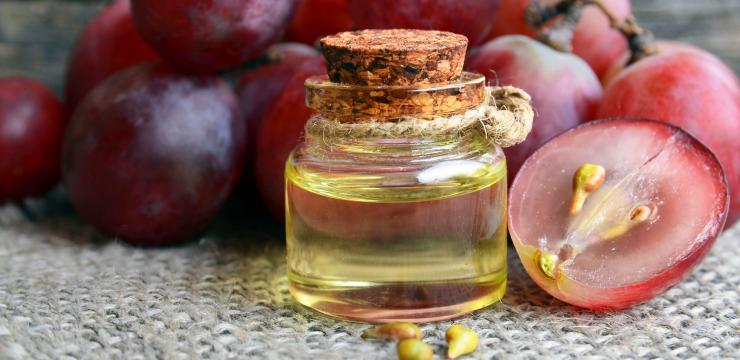
- Excerpt
In 1965, professor Jack Masquelier listed a wide variety of vascular disorders that could result from a deficiency in OPCs, which, at the time, he referred to as “vitamin P factor.” He also explained why most people are most likely deficient in OPCs. “OPCs”, Masquelier wrote, “are found in nature, in the natural state, in fruits and vegetables in particular. A normal diet should therefore provide an adequate amount of OPCs to avoid any deficiency. However, these constituents are usually located in the bark, teguments, cuticles and woody parts of plants, so that they are eliminated when we eat fruits and vegetables. It is therefore hardly surprising that there are individuals who suffer from problems indicative of OPCs deficiency, in spite of having a healthy, balanced diet.”
Table of contents
OPCs are essential nutrients
Seeing today’s abundance of vitamin supplements in pharmacies, drugstores, health food stores, and supermarkets, we must conclude that Masquelier was a real nutritional pioneer when during the mid-1960s he wrote about the risk of a dietary deficiency of OPCs. At that time, he had not only conclusively brought to light many of the health benefits of OPCs, but he had also squarely placed these health benefits within the framework of the modern, western diet, which is prone to be deficient in OPCs. When Masquelier warned about the widespread deficiency in OPCs, dietary supplements as they exist today were practically unknown. But since the late 1970s, people have become increasingly aware of the fact that dietary supplements must play a prominent role in their health. Although the early history of OPCs products determined that OPCs began their voyage on the marketplace as herbal remedies in France, the more recent use of OPCs as dietary supplements has confirmed what Masquelier and his colleagues have been telling us since the beginning of their research: OPCs are essential nutrients.
Scurvy still exists !
Cardiovascular and other degenerative diseases are the result of a deficiency in vitamin C, OPCs, and other essential nutrients. The cardiovascular and cancer mortality rates are proof that in all their affluence, the Western societies still suffer from a suboptimal supply of vitamin C and OPCs. To put it in no uncertain terms, many of us still suffer from scurvy, be it that this form of scurvy manifests itself, for instance, in the form of vascular diseases. The abundance of food products and our bulging refrigerators give the false impression that food cannot be the cause of disease because there’s plenty of it. In turn, this idea leads to the rather mediaeval thinking that disease is a curse that can be cured only by physicians who wear white coats and scribble prescriptions that may be deciphered only by pharmacists who then deliver us drugs with fancy names and side effects to which we must subject ourselves to drive out the curse.
OPCs protect Omega-3 oils against oxidation
Apart from the fact that Masquelier’s OPCs provide a full range of seemingly unrelated health benefits, their core benefit rests on the fact that they are also tremendously strong and safe antioxidants. This is why, in a nutritional context, OPCs are strongly recommended in the event of regular intake of vegetable oils, which are rich in Omega-3 polyunsaturated fatty acids (PUFAs). Polyunsaturated fatty acids have become an important staple in today’s diet, especially the diet that is officially recommended to reduce the risk of cardiovascular diseases. Unfortunately, unsaturated fatty acids are the preferred target of the free radicals. The free radicals that bother us most are radical forms of oxygen that indiscriminately “burn holes” in practically everything our body contains and is made of. Not only are fatty acids turned ineffective by free radicals, but they initiate a process generating huge quantities of even more poisonous new free radicals.
Be smart, do what nature does
Consuming unsaturated Omega-3 fatty acids in an isolated and unprotected manner, i.e. without balancing the diet with antioxidants, means exposing oneself to a biological risk. It is vital to combine the consumption of Omega-3 type unsaturated fatty acids with the intake of an effective radical scavenger. As shown by good old Mother Nature, the very reason plants produce OPCs and other antioxidants is to protect sensitive substances such as fatty acids from oxidation. Large scale industrial manufacturing of vegetable oils destroys the antioxidants or separates them from the oils contained in the raw materials. Cold pressed oils from first pressings of olives, linseeds, grape seeds, and other sources still contain the naturally occurring antioxidants, but these are not the oils used in the margarines we find on the mass markets’ shelves. You have to be quite selective when chosing your PUFA’s and do what the plants that deliver them do: protect them against oxidation.
OPCs … the patented antioxidants
Certain antioxidative enzymes that the body itself produces — such as peroxidase, catalase, and superoxide dismutase (SOD) — provide natural, innate protection against free radicals and oxidative accidents in our body. But the older we grow, the less effective these free radical scavenging enzymes become. This means that when we need the enzymatic protection most, during the second half of our lives, we become exposed to exponentially growing health risks. To defuse this situation, we should take dietary antioxidants to put the brakes on the oxidants that speed up the aging process. In the U.S. Patent that Masquelier was awarded in 1987 for his invention of OPCs’ antioxidative (free redical scavenging) effect, the humble French professor wrote that although OPCs do not overcome the aging process, due to their radical scavenging effect they may prevent and fight “the harmful biological effects of free radicals in the organism of warm-blooded animals and more especially in human beings, namely cerebral involution, hypoxia following atherosclerosis, cardiac or cerebral infarction, tumor promotion, inflammation, ischemia, alterations of the synovial liquid, collagen degradation, among others.” No wonder that this invention gave a boost to the use of his OPCs in dietary supplements around the world.






